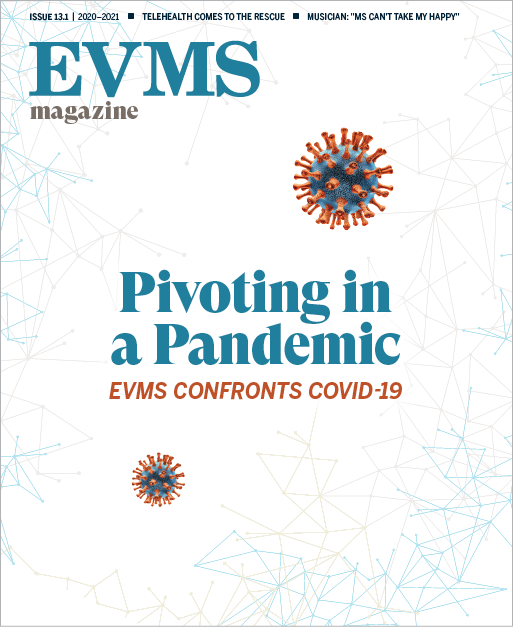
What happens when the people most affected by a policy aren’t involved in the process of developing it? That’s what the National Cancer Institute, part of the National Institutes of Health, expects Andrew Plunk, PhD, MPH, to determine — with the $3,073,371 NIH grant he was awarded in August.
Dr. Plunk’s R37 Method to Extend Research in Time (MERIT) Award is titled “Using Differences in Perceived Legitimacy and Resident Compliance to Promote Fair and Effective Implementation of Smoke Free Housing.”
In February 2017, the U.S. Department of Housing and Urban Development mandated that all public housing in the nation be made smoke-free by July 31, 2018. However, the prior work of Dr. Plunk’s team suggests that public housing residents consider these policies unfair, which undermines compliance and potentially creates negative unintended consequences. The goal of the NIH grant is to verify how these policies can be harmful and propose adaptations to increase their effectiveness.
“Excluding people causes mistrust, which can have far-reaching ramifications,” says Dr. Plunk, Associate Professor of Pediatrics. “For example, we found that smokers who lived in buildings where smoking had been banned were less willing to quit and that their resentment about being told they couldn’t smoke in their apartments played a role in that.
“We think that perceived unfairness and mistrust could affect other important interactions that have implications for health,” he adds. “This is likely happening in other areas; for example, when people have a bad experience with their doctor.”
Public housing communities in Chesapeake, Hampton, Newport News, Norfolk, Portsmouth and Suffolk will be involved in the research.
The MERIT Award provides longer-term support for promising researchers within the first decade of their careers. It is chosen by NIH staff from a pool of applications that received exceptional scores. MERIT awardees may obtain up to seven years of support in two periods: the initial five-year award and an extension of up to two additional years, based on an expedited review of the accomplishments during the initial funding period.

Kelli England, PhD, the Toy Savage Endowed Professor in Pediatrics and Professor of Pediatrics, directs the Community Health and Research division of EVMS Pediatrics, home to Dr. Plunk and his research.
“Dr. Plunk and his team have worked in partnership with our public housing communities for many years,” Dr. England says, “to understand resident perceptions regarding equity and fairness and to implement programming that advances resident well-being.” This new grant, she explains, will enable him to propose and study beneficial adaptations to the smokefree housing policy.
The MERIT award is the second highly competitive NIH grant Dr. Plunk has received.
“It is one of distinction that recognizes exceptional early-stage investigators,” Dr. England adds. “It is a well-deserved recognition for Dr. Plunk that underscores the value of this work in advancing the health of our community.”
EVMS co-investigators on the grant include Brynn Sheehan, PhD, Assistant Professor of Psychiatry and Behavioral Sciences and team member with the EVMS-Sentara Healthcare Analytics and Delivery Science Institute; and Amy Paulson, MPH, Instructor of Pediatrics and Director of the Consortium for Infant and Child Health (CINCH) based at EVMS.
Ms. Paulson’s experience helping public housing communities become smoke-free dates back to 2010, when she started working with residents in Portsmouth. As a result, in 2015 Portsmouth public housing became the Virginia’s first smoke-free public housing community.
“This research is about being responsible to the communities and responsive to them,” Ms. Paulson says. “We have a responsibility in public health to not just implement the work, but to look at the unintended consequences. We need to make sure the policy works as intended.”
Other co-investigators on the project include faculty members with Harvard School of Public Health, Saint Louis University and the University of Southern California.
“I am so proud of Dr. Plunk and our whole team of faculty who have supported and worked with him to achieve his grant,” says C.W. Gowen Jr., MD, the EVMS Foundation Chair in Pediatrics and Professor and Chair of Pediatrics. “I look forward to observing the effect this grant will have on our communities.”












